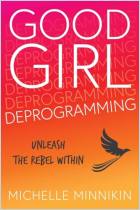Зарегистрируйтесь на getAbstract, чтобы получить доступ к этому краткому изложению.

Зарегистрируйтесь на getAbstract, чтобы получить доступ к этому краткому изложению.
Elizabeth Leiba
I’m Not Yelling
A Black Woman’s Guide to Navigating the Workplace
Mango Publishing, 2023
Что внутри?
Learn how to claim your authentic voice and power as a Black woman in white-dominated workplaces.
Recommendation
If you’re a Black woman struggling to assert yourself in the workplace and achieve your full potential, you’re not alone. Gain insights from writer and college professor Elizabeth Leiba about the root causes of your so-called imposter syndrome and how to hold white people accountable for microaggressions. Leiba urges you to start writing your own life narrative to unlock opportunities and connect with a community of Black women who share your values. While you may feel tempted to conform to a predominantly white work culture, Leiba reminds you that there’s nothing “unprofessional” about your true identity.
Summary
About the Author
Elizabeth Leiba is a college professor, a writer, and the host of Black Power Moves, a podcast on the Ebony Covering Black America Podcast Network. She also launched Black Women Handle Business, a website for Black women professionals and entrepreneurs who want to collaborate, network, and share resources.




















Comment on this summary